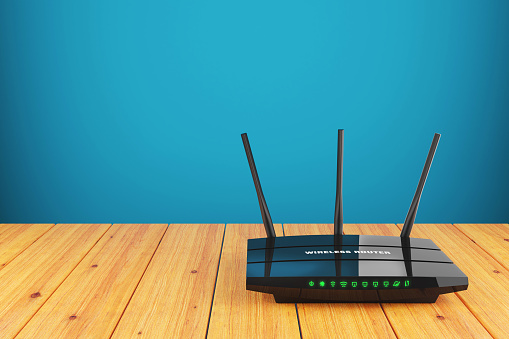By Alice Williams
Whether or not a small business provides a strong Wi-Fi signal for its customers may determine a lot about its success. Brick and mortar shops such as cafes, bed and breakfasts, and restaurants, can be havens for local customers, but a single router doesn’t always provide enough wireless coverage for an entire business’s location.
Though many people have access to cellular data, Wi-Fi is still a highly valued commodity to consumers who need a connection on the go. Luckily, helpful tools like Wi-Fi extenders can harness the power of a wireless connection to provide customers with more coverage—at little cost to the business owner.
Types of Wi-Fi Extenders to Boost Signal
A Wi-Fi extender is a great way to expand wireless signal coverage without buying and installing a new router. Extenders are often small boxes that can be easily plugged into any electrical outlet. Depending on the type of extender and router, the setup process for Wi-Fi extenders will vary. Most types of extenders fall into two categories.
- Powerline Adaptors. One way to extend a business’s Wi-Fi signal range is to use a power line adaptor. These adaptors usually come in sets of two. One adaptor plugs into an outlet—it doesn’t work as well if it is plugged into a power strip—and has an Ethernet cable that plugs into a router. The other adaptor plugs into an outlet in the location that needs signal improvement to provide an expanded Wi-Fi network from that spot. Power line adaptors expand a wireless network by transmitting the internet signal from the first to second adaptor through the building’s electrical wiring. For business owners who want to extend their Wi-Fi signals without running many network cables, power line adaptors are a simple, effective solution.
- Wireless Range Extenders. Wireless range extenders use antennae to help improve a Wi-Fi signal’s range. They receive the signal and rebroadcast it in another direction. This may slow down a Wi-Fi network’s speed because the extender is redistributing the entire connection over a larger area, but any reduction shouldn’t be felt by customers who are only sending emails or writing essays. For the best speed, wireless range extenders should be centrally located and fairly close to the router so they can redistribute the strongest signal possible.
Benefits of Using Wi-Fi Extenders in a Small Business
Buying and setting up a Wi-Fi extender might seem like a lot of work, but the effort will quickly pay off—a small business can benefit in a number of ways.
- Save Money on Staff. Nearly 45% of customers use in-store Wi-Fi to research coupons, products, and the business’s site. If customers are able to search for the information they need, businesses don’t always need staff members to answer every customer’s questions.
- Improve Social Clout. Yelp is a great example of how reviews can make or break a small business. When a local restaurant has great wireless internet, customers are more likely to note this in reviews they write online, which gives social credibility to the establishment. In fact, Wi-Fi is often a category customers can use in restaurant reviews.
- Boost Sales. Wi-Fi extenders have the power to extend a customer’s stay. Cafe patrons often bring in a laptop and could spend hours working on projects if the wireless signal is strong. A 2014 study showed that nearly 62% of customers spend more time in stores with wireless and over 50% spend more money.
- Increase Foot Traffic. Wi-Fi extenders are also a great way to attract customers. If a passerby is looking for coverage on his or her mobile device, and a small business seems to have a strong Wi-Fi signal, the potential customer may be more inclined to choose that business for a visit.
Overall, Wi-Fi extenders are a great way small business owners can bolster sales. Are there any other steps you recommend small businesses take to increase foot traffic in brick and mortar businesses?
Alice Williams has written in-depth on a wide variety of topics which include business, technology and social media. She has a masters degree in Communication Studies from San Francisco State University. Follow her at @1alicehw.







